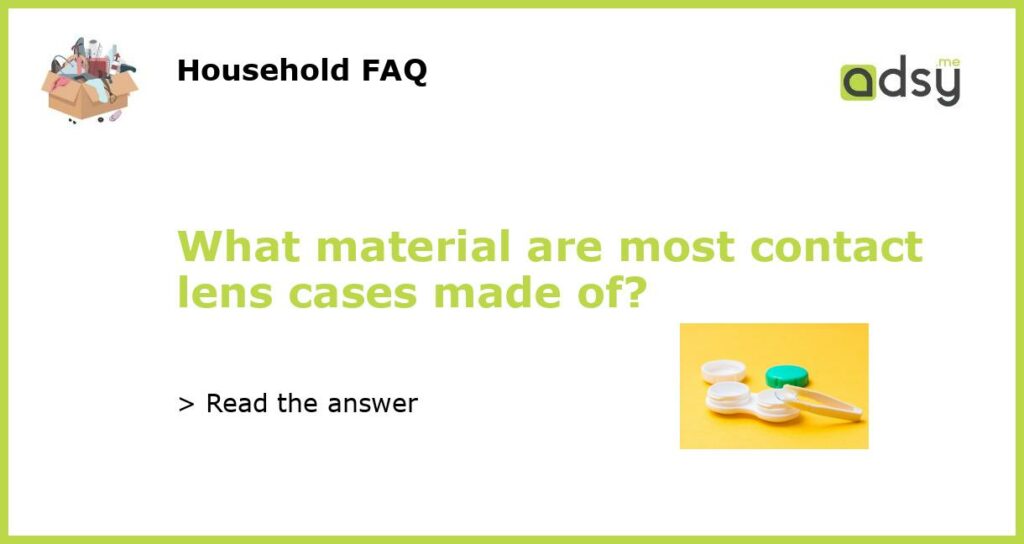The most common material used for contact lens cases: a closer look
Contact lenses require proper care, which includes using the right contact lens case made of the appropriate material. The most common materials used are plastic, silicone, and metal. Understanding the properties of each material can help you choose the ideal contact lens case for your needs.
Plastic contact lens cases
Plastic contact lens cases, which are usually made from polypropylene or polycarbonate, are commonly used due to their affordability and durability. They are also lightweight and available in a variety of colors and designs. However, plastic cases may break or crack over time, which can compromise their ability to protect your lenses from contaminants. They also retain more bacteria compared to other materials.
Silicone contact lens cases
Silicone contact lens cases are becoming increasingly popular due to their flexibility and resistance to breakage. They are also more hygienic compared to plastic cases, as they do not accumulate bacteria as much. Silicone cases are ideal for people who travel frequently, as they are portable and can fit easily into bags and pockets.
Metal contact lens cases
Metal contact lens cases, usually made of aluminum or stainless steel, are among the most durable and long-lasting options. They are also very easy to clean and maintain hygiene. However, metal cases tend to be more expensive than plastic or silicone cases, and they are not as flexible, which means they may not fit as effortlessly into small purses or pockets.
Choosing the best material for your contact lens case
Ultimately, the choice of material for your contact lens case will depend on your specific needs and preferences. If affordability is a concern, a plastic case may be the best choice. For those who prioritize hygiene and portability, a silicone case may be the ideal option. And if durability and longevity are the top priorities, a metal case may be worth the investment. Whatever material you choose, be sure to clean and replace your contact lens case regularly to prevent contamination and protect your eyes from infection.






